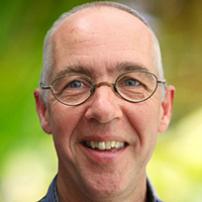
Perhaps the most important thing I have learned in the school is to understand experientially that who and what I am is a timeless, formless consciousness that is functioning in a human form in this physical world as Chris Elzinga. In this process, I deeply learned to be at ease with myself and with life in general. Another great gift of the work is that I feel so much more trust in the many ways my life unfolds – however it comes – as I never could have imagined before. And I often feel a deep compassion and love for all human beings.
As teachers of the Diamond Approach we all have gone through a long process of working with our past experiences that have impacted our beings deeply. In my case, part of this process was dealing with trauma from early childhood and with being partly raised in a foster family. I know from within what it means to process these deep impressions. I have two daughters in their late twenties and as a parent love to facilitate their growth and maturation. From the experience I have with them and with other young people, I like to work also with young adults.
What attracted me most to the Diamond Approach was the soul work. The teachings gave acknowledgement to what I had experienced throughout my life: that the soul is a living consciousness, expressing itself in a physical form/body. I always had felt that there was something beyond the external appearance of human beings, something also beyond people’s ego. In the Diamond Approach this something got a name: soul, and I started to feel it experientially, as a reality. This opened many doors of experiencing my depth in new and unexpected ways.
The Diamond Approach is a spiritual path, oriented to learning to know and understand reality. It is not about solving personal problems, although that may happen through personal work. So we face reality as it appears in our experiences. We don’t need to get rid of anything, like the ego with its patterned ways of dealing with life. We learn about these patterns, their underlaying convictions, history etc. When we do that without judgments and with compassion, curiosity, discriminating awareness and steadfastness, these patterns tend to relax or even dissolve, and new ways of experiencing oneself and reality can open up.
Chris Elzinga, blog-artikelen op de eigen website, waaronder een serie over 'Werken met innerlijke kinderen' en 'Omgaan met superego'.
Chris Elzinga, In voor- en tegenspoed verbonden. 1900-1950: een korte geschiedenis van het gezin Sonneveld-van Opijnen, 2021
Chris Elzinga, maandelijkse columns voor het platform Vive-Levenskunst, dec. 2016 - dec 2021.
Chris Elzinga en Leo van der Tuin, Wat het leven bijzonder maakt. Zingeving en ervaringen van transcendentie onder jong volwassenen in de wereld van hogeschhol en universiteit, Fontys Hogeschool Theologie Levensbeschouwing, 2010
Chris Elzinga, Hoezo verbonden met de natuur? Over de belemmeringen van ego en het verlangen van de ziel, in: Chris Elzinga (red.) e.a., Eenvoudig verbonden – Bijdragen aan (franciscaanse) milieuspiritualiteit, Valkhof Pers, 2007
Chris Elzinga (red.) e.a., De kracht van Water, Aarde, Lucht en Vuur – Leven met de natuurelementen, 2005

